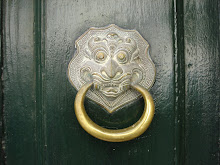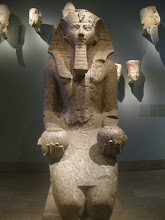The secret spy side of me that has watched too many CIA movies is telling me not to write this (because what if they reeeaaaad), but the more sober they-already-know-everything side of me knows that... well, they already know everything.
(I don't use mine or anybody else's full name anywhere in this blog, but who am I kidding? They know it's my blog).
So here it goes:
The Israeli intelligence knows EVERYTHING. And when I say 'everything' I mean EVERYTHING.
Every single freaking thing.
It's freaky and scary and surprising all at the same time when you get pushed into situations where it becomes unmistakably clear that they do.
Our intern Moni's boyfriend and cousin came to visit, and they were held at the airport for six hours.
Six hours!
Six hours of interrogation and waiting.
They started out by lying about visiting the West Bank, because everybody knows that if you say you will visit here, then you will have problems.
But apparently, you will have problems anyway. (As I already knew, to be frank).
It soon became clear to them that it was entirely useless to lie, because the Israelis alrady knew about their girlfriend/cousin. They knew that she's here in the West Bank and not in Israel. They knew that she's working with us, in our NGO. They knew that she's working with Tarek and me. They freaking knew that she was in Jordan when they arrived!
(And nobody of us ever told them).
And yet, they let them in. Just like they let me in last summer after 5 hours of interrogation. Or like they gave Moni a new three-month visa.
So what's the point? Of all those hours of interrogation? Of freaking us out by showing off their intelligence-gathering skills?
Make us not want to come back? But we will.
And every time they do this to us, we get even more critical of the State of Israel, and we tell even more people of how they treat normal human beings who would just like to visit, or perhaps volunteer in a charitable organization, or, God forbid, work in humanitarian aid or even something so terrible as human rights.
And even more people will shake their heads, learn more about the conflict, join the boycott, divestment and sanctions movement against Israel. Even more people will pressure their governments to take a stand for the Palestinian people against the occupying power.
Don't they know this?

(I don't use mine or anybody else's full name anywhere in this blog, but who am I kidding? They know it's my blog).
So here it goes:
The Israeli intelligence knows EVERYTHING. And when I say 'everything' I mean EVERYTHING.
Every single freaking thing.
It's freaky and scary and surprising all at the same time when you get pushed into situations where it becomes unmistakably clear that they do.
Our intern Moni's boyfriend and cousin came to visit, and they were held at the airport for six hours.
Six hours!
Six hours of interrogation and waiting.
They started out by lying about visiting the West Bank, because everybody knows that if you say you will visit here, then you will have problems.
But apparently, you will have problems anyway. (As I already knew, to be frank).
It soon became clear to them that it was entirely useless to lie, because the Israelis alrady knew about their girlfriend/cousin. They knew that she's here in the West Bank and not in Israel. They knew that she's working with us, in our NGO. They knew that she's working with Tarek and me. They freaking knew that she was in Jordan when they arrived!
(And nobody of us ever told them).
And yet, they let them in. Just like they let me in last summer after 5 hours of interrogation. Or like they gave Moni a new three-month visa.
So what's the point? Of all those hours of interrogation? Of freaking us out by showing off their intelligence-gathering skills?
Make us not want to come back? But we will.
And every time they do this to us, we get even more critical of the State of Israel, and we tell even more people of how they treat normal human beings who would just like to visit, or perhaps volunteer in a charitable organization, or, God forbid, work in humanitarian aid or even something so terrible as human rights.
And even more people will shake their heads, learn more about the conflict, join the boycott, divestment and sanctions movement against Israel. Even more people will pressure their governments to take a stand for the Palestinian people against the occupying power.
Don't they know this?
























